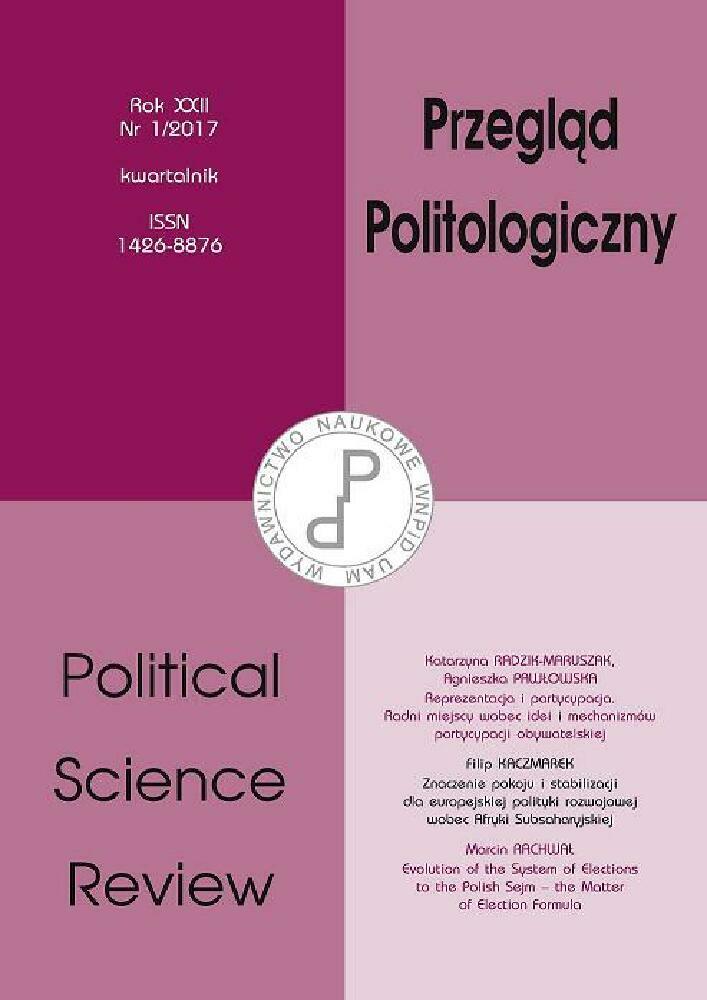Abstract
Belgium is a founding member of the European Union (EU). It is a trilingual federation, consisting of four different entities constituted on the basis of language. The linguistic groups within the Belgian population have had a long history of conflict. For many years, tensions between the French and Dutch speaking areas have been ameliorated through the principle of “territoriality.” The application of this principle resulted in the division of the country into three areas: the Flemish Region (the Dutchspeaking region in the north), the Walloon Region (the French speaking region in the south) and the Brussels-Capital Region (officially bilingual but predominantly francophone). In each of those areas, only one language has official status, and the speakers of other national languages residing there have no linguistic rights. The principle of territoriality has resolved some tensions between the linguistic groups by guaranteeing linguistic rights within geographic boundaries, yet it has not fully resolved them. The Belgian experience in dealing with a multicultural and multi-linguistic polity will clearly provide valuable insights for other national groups wrestling with the ever-increasing heterogeneity among their linguistic populations. More important in the short term, however, is the ongoing struggle for dominance between French and Dutch speakers within Belgium. The specificity of the Belgian federal system is also reflected in the executive power.
References
André A., Depauw S., Deschouwer K. (2015), Changing Investiture Rules in Belgium, w: Parliaments and Government Formation. Unpacking Investiture Rules, red. B. E. Rasch, J. A. Cheibub, Ofxord University Press.
Biskupski K. (1964), Ustrój polityczny Belgii. Studium o różnicach między ustrojem konstytucyjnym a rzeczywistością, Toruń.
Claes J., Rosoux V. (2011), Belgium, from Model to Case Study for Conflict Resolution, „PeaceBrief” nr 79, http://www.usip.org/sites/default/files/PB79-Belgium,_from_Model_to_Case_Study_for_Conflict_Resolution.pdf.
De Winter L. (2013), Parliament and Government in Belgium: Prisoners of Partitocracy, w: Parliaments and Governments in Western Europe, red. P. Norton, Routledge, London–New York.
De Winter L., Rezsöhazy L. (2012), The Afterlives of Belgian Prime Ministers, w: Formers Leaders in Modern Democracies. Political Sunsets, red. K. Theakston, J. de Vries, Palgrave Macmillan.
De Winter L., Timmermans A., Dumont P. (2003), Belgium: On Government Agreements, Evangelists, Followers, and Heretics, w: Coalition Governments in Western Europe, red. W. C. Müller, K. Strøm, Oxford University Press.
Delwit P. (2011), Elections et gouvernements en Belgique depuis 1945, w: Les partis politiques en Belgique, red. P. Delwit, J.-B. Pilet, É. Van Haute, Bruxelles.
Deschouwer K. (1994), The Decline of Consociationalism and the Reluctant Modernization of Belgian Mass Parties, w: How Parties Organize: Change and Adaptation in Party Organizations in Western Democracies, red. R. S. Katz, P. Mair, London–Thousand Oaks–New Delhi.
Deschouwer K. (2013), The Belgian Federation. A Labyrinth State, w: Routledge Handbook of Regionalism and Federalism, red. J. Loughlin, J. Koncaid, W. Swenden, Routledge, London– New York.
Deschouwer K. (2012), The Politics of Belgium. Governing a Divided Society, Palgrave Macmillan.
Deschouwer K., Van Parijs P. (2013), Electoral Engineering for a Stalled Federation, w: Power Sharing in Deeply Divided Places, red. J. McEvoy, B. O’Leary, University of Pennsylvania Press.
Dydak E., Saczuk A. (2013), Królestwo Belgii, w: Systemy polityczne państw Unii Europejskiej, t. I, red. K. A. Wojtaszczyk, M. Poboży, Wydawnictwo Liber, Warszawa.
Erk J. (2008), Explaining Federalism. State, Society and Congruence in Austria, Belgium, Canada, Germany and Switzerland, Routledge, London–New York.
Fitzmaurice J. (1996), The Politics of Belgium. A Unique Federalism, London 1996.
Głowacki A. (1987), Belgia (od państwa unitarnego ku federacji), Szczecin.
Głowacki A. (1995), System polityczny Belgii, Szczecin.
Głowacki A. (1997), System konstytucyjny Belgii, Wydawnictwo Sejmowe, Warszawa.
Goossens J., Cannoot P. (2015), Belgian Federalism after the Sixth State Reform, „Perspectives on Federalism”, vol. 7, issue 2, http://www.on-federalism.eu/attachments/213_download.pdf.
Keman H. (2008), The Low Countries. Confrontation and Coalition in Segmented Societies, w: Comparative European Politics, red. J. M. Colomer, Routledge, London–New York.
Klepka R. (2012), Kryzys polityczny lat 2010–2011 w Królestwie Belgii – geneza i możliwe następstwa, w: Na tropach twórczości i czasów minionych. Księga Jubileuszowa ofiarowana Profesorowi Damianowi Tomczykowi, red. M. Cetwiński, A. Czajkowska, Częstochowa.
Klepka R. (2014), Rządy mniejszościowe w Belgii: trudności istnienia stabilnego rządu w państwie Flamandów i Walonów, w: Rządy mniejszościowe w wybranych państwach świata. Studium prawno-politologiczne, red. R. Radek, Sosnowiec.
Konstytucja Królestwa Belgii (2010), tł. i wstęp W. Skrzydło, Wydawnictwo Sejmowe, Warszawa.
Kużelewska E. (2015), Language Border and Linguistic Legislation in Belgium, „Michigan State International Law Review Forum Conveniens”, vol. 3, http://msuilr.org/?forum-conveniens=language-border-and-linguistic-legislation-in-belgium.
Louwerse T., Van Aelst P. (2013), The Exceptional Belgian Case? Government Formation Duration in Comparative Perspective, http://www.sciencepolitique.be/IMG/pdf/louwerse_the_state_of_the_federation_2013.pdf.
Philips V., Vermeersch P. (1998), Belgia: geneza i organizacja państwa federalnego, „Studia Europejskie”, nr 1.
Pilet J.-B. (2015), Electoral System Change in Europe since 1945: Belgium, http://www.electoralsystemchanges.eu/Files/media/MEDIA_121/FILE/Belgium_summary.pdf.
Procedury wyborcze w krajach europejskich. Opracowania tematyczne OT – 635, Kancelaria Sejmu. Biuro Analiz i Dokumentów, Warszawa 2015 https://www.senat.gov.pl/gfx/senat/pl/senatopracowania/130/plik/ot-635_do_internetu.pdf.
Romainville C. (2015), Dynamics of Belgium Plurinational Federalism: A Small State Under Pressure, „Boston College International and Comparative Law Review” vol. 38(2), http://lawdigitalcommons.bc.edu/iclr/vol38/iss2/3.
Stepan A. (2001), Arguing Comparative Politics, Oxford University Press.
Swenden W. (2011), Why Is Belgian Federalism Not More Asymmetrical?, w: Federalism Beyond Federations. Asymmetry and Processes of Resymmetrisation in Europe, red. F. Requejo, K.-J. Nagel, Ashgate Publishing Limited.
Timmermans A. (1994), Cabinet ministers and policy-making in Belgium: the impact of coalition constraints, w: Cabinet Ministers and Parliamentary Government, red. M. Laver, K. A. Shepsle, Cambridge University Press.
Wilsford D. (1995), Political Leaders of Contemporary Western Europe. A Biographical Dictionary, Greenwood Press, Westport–Connecticut.
Vandekerchhove R. (2005), Belgian Dutch versus Netherlandic Dutch: New Patterns of Divergence? On Pronouns of Address and Diminutives, „Multilingua”, vol. 24.
Van den Bosch J. (2011), Troubles in the heart of the EU – Political crisis in Belgim, „Rocznik Integracji Europesjkiej”, nr 5.
Zieliński E. (2003), Rząd Królestwa Belgii, w: Rządy w państwach Europy, red. E. Zieliński, I. Bokszczanin, Oficyna Wydawnicza ASPRA-JR, Warszawa.
Żelichowski R. (2014), Królestwo Belgii – szósta reforma ustrojowa, „Biuletyn Analiz i Opinii PAN ISP”, nr 2(14), http://www.isppan.waw.pl/subpage/zaklady/ze/files/biuletyn2014_0214.pdf.
